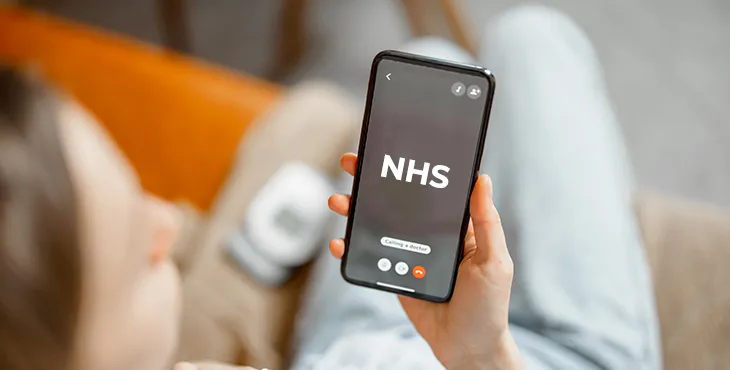
NHS Vaccination calls - are they scam or spam calls?
Fraudsters operate in a variety of ways. Unfortunately, you need to be aware of how they work so that you can avoid being scammed and take appropriate action. They will often try to defraud your money, find information about bills or pay slips, licence bills or pay slips and even ask to send them copies of your personal documents.
So, what you can do to avoid being cheated and scammed?
NHS Vaccination - a rise in the number of spam calls
NHS Vaccination calls are a type of scam where fraudsters pose as NHS England staff in order to try and obtain personal information or money from members of the public.
This type of scam has been reported more frequently in recent months, as the NHS vaccination programme has rolled out across the country.
These calls often claim to be from the NHS and try to trick people into giving away personal or financial information, or even paying for the vaccine - which is free from the NHS of course.
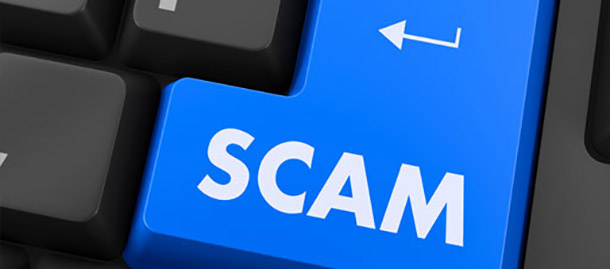
What do you need to watch out for?
Phone calls
You may receive a phone call pretending to be from NHS with information about the vaccination. This call could be through a hidden number, or from a different area code outside of where your area. During the call you may be asked to pay for the vaccine, but also for personal information such as your bank account number, personal documents with your name and address and more worryingly - your payment card details. Never share this information and never book any appointment over inbound phone calls you can't trust.
Worse case scenario, hang up and call them back yourself. Especially that it's possible for fraudsters, hackers and scammers to spoof a phone number pretending to be a credible organisation. You can always write an e-mail to [email protected] to help the NHS tackle the Covid 19 vaccination scam.
Text messages
You may be asked to reply if you are interested in the vaccination. If you do this, charges may be added to your telephone bill that are far outside of your normal charges.
The scammers will also gain additional personal information about you. If you notice any suspicious text messages, delete them immediately and never reply to them. Alternatively, report the call online to help NHS authorities prevent future suspicious phone calls.
E-mails
Never click on suspicious links. You may get a message redirecting you to a website to book the vaccination appointment, as well as asking for your bank details, pin or banking password, sending copies of documents or logging into your bank via their link to pay for the vaccination. Never do that! You can always forward those e-mails to an e-mail address found on the to NHS website; just search for 'NHS phishing' .
Home visits
There is also an increasing number of home visits where fraudsters claiming to be from the NHS try to trick you into paying for your vaccination appointment.
Healthcare professionals from the NHS will never arrive unannounced at your home to administer the covid 19 vaccine.

Remember, vaccine is free
The best way to protect yourself from these scams is to be aware of what to look out for.
If you receive a call from someone claiming to be from the NHS, asking for payment for the vaccine, please hang up. The NHS will never ask for payment for the vaccine. It is free of charge for everyone in the UK.
The NHS will never call you out of the blue to offer you the vaccine. You will only be contacted if you are eligible for the vaccine and have a vaccination appointment booked.
NHS will never ask you for your financial details over the phone
The NHS will never ask for your bank details, pay slips, or requesting you to send copies of documents, or any other financial details. If you receive a call from someone claiming to be from the NHS, do not give them any personal information.
The NHS will never ask you to provide your PIN, bank account or full banking password during a mobile call.
NHS will never ask you for your personal documents over the phone
In order to phish for your contact details, scammers will try to extract information from you in order to confirm your address. They may ask for your passport, driving licence, bills or pay slips, TV licence bill or other document with your personal details.
Remember, NHS would never ask for sending copies of personal documents!
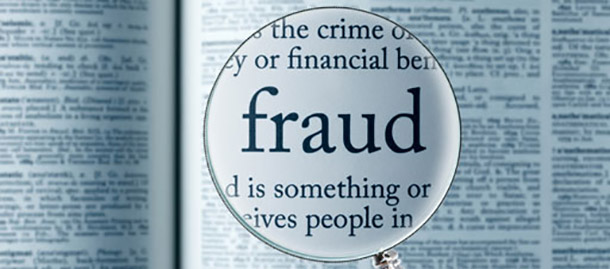
How can you identify theft?
Scammers calling you are increasingly well prepared and their actions will not arouse suspicion at first glance. They will probably be very friendly and try to inspire your confidence so that you are more willing to share information. Since they know your phone number, it could be that they know a lot more about you and will want to use this in their conversation with you so that you don't guess that something is wrong. You need to be vigilant.
Always ask the scammers where they are calling from. They may call several times from different numbers or make further appointments after hooking you in. They may not want to immediately phish for information, so be careful!
Who may call you?
You should be aware that scammers do not only impersonate the NHS directly. You may receive phone calls and text messages from people introducing themselves as United Kingdom Welfare Department, Covid Help Desk, Public Health Department, Clinical Commissioning Groups, Your local GP, etc.
Covid-19 vaccine fraud
Covid-19 vaccine scams are on the rise lately. Scammers are using the pandemic to scam money and personal information.
The growing popularity of the Covid 19 vaccination has led to a rash of scammers looking to exploit people's fears. Remember to never to share your details.
Scammers continue to use this disease for their purposes. They keep sending suspicious text messages about a booster dose, contact with an infected person, NHS Covid pass or to book you vaccination appointment.
At first glance you may get the impression that it was sent from your local GP services or local NHS services.
In the text message you will get a link where if you click on it you will be redirected to a suspicious site where you can share a lot of information about yourself with the scammers. Therefore, never click on these links or call back the phone numbers provided. Pay attention to the domain name (like .com, .gov. or co.uk). Foreign or unknown domains would not be used by a credible health organisation in the UK.
Remember that Covid 19 vaccine is free by appointment with your GP.
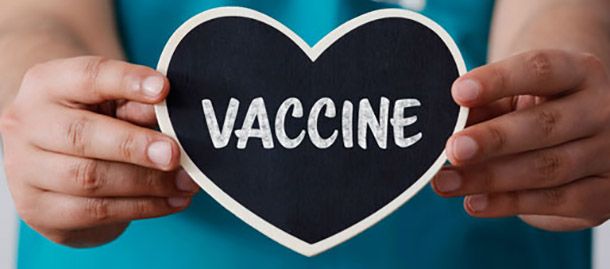
How does NHS get in touch?
If you are interested in receiving a certain vaccination, contact your GP who will check that you are eligible. If so, they will book your appointment.
If the NHS or your local surgery want to contact you, they will send you a letter with all the information. However, you should be careful about this too. If you do not know the phone number or website on this letter, discard it. A simple phone call to your GP or NHS will help to put your mind at ease about the real Covid 19 vaccine.
You can find the addresses and phone numbers of all local GP practices on the NHS England website. Find yours there and contact them only through these details.
How to spot a scam?
Fraudsters are well prepared and their operations are getting better and better. You need to know that they will do everything to ensure that you do not guess that something is wrong. Their actions can be perfect and very professional.
At first sight, it's hard to notice that something seems wrong - the scammers could use credible email addresses, and run websites that seem to have all the latest information, right logos, colours and menus.
However, there are a few details that should worry you:
NHS would never call you during bank holidays - scammers often call on their days off. This should worry you.
Another thing is asking you if you have had certain Covid 19 vaccination (or different). The NHS does not need to know this from you as they already have this information on your system.
When calling, scammers usually do not introduce themselves by name or give their job title. They usually say they are calling from the NHS. This should give you a red light.
They call from various landline numbers from all over England. A good way is to look up the phone number on the internet. Worse case scenario, you hang up and call the right department to resume the conversation.
You may be asked to fill in the survey and be offered the prize for its completion.
Fraudsters also offer to invest money in concerns such as Pfizer. For example, they might try to convince you that to get the Pfizer vaccine, you need to transfer money to secure your spot before it sells out. All the while the conversation is still going on.
During the call they may ask you to log in into your online bank account application. If you do this, they will download important data about you as well as your PIN and banking password.
They may also offer you to mail you a vaccine. Covid 19 vaccine needs to be kept refrigerated to remain efficient and can only be administered by a trained health professional.
Fortunately, scammers do not go unpunished and many people report such numbers as suspicious. This information is publicly available on the internet. Beware of numbers such as 01244 456 019, which claim to be from Covid 19 Vaccination Centre.
Remember that the numbers of all institutions can be found on the NHS website.
All of the above situations are a scam.
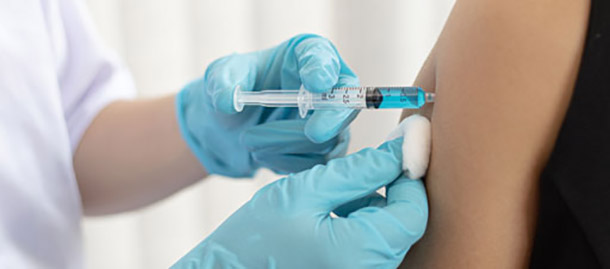
How to report vaccine scams?
If you believe you are a victim of fraud or identify theft, you should report it directly to Action Fraud on 0300 123 2040. You can also find more information on their website: www.actionfraud.police.uk/nhs-vaccination-scams.
If you are not sure whether a call you have received or a message you have received is genuine, try to check it yourself as described below.
You can start by checking the NHS England website for up-to-date information on immunisations and how the NHS is contacting patients.
Call your GP practice on the number you are using. Never use numbers from the text messages or e-mails - they can also be false.
Your GP surgery should have up-to-date information about your vaccinations, invitations to them, letters sent, phone calls, etc. This is a quick way to check whether or not a message you have received is genuine.
They would never ask you for sending copies of any documentation, as the NHS and your local GP already have everything in their system so it is a good idea to check all information with them.
You can call 119 for help with your COVID-19 vaccination record if you had your vaccination in England, Scotland or Wales and you're registered with a GP in England.
What NHS is doing to prevent these practices?
First of all, they use extensive information campaigns.
Unfortunately, it is not possible to eliminate problems completely, even if the identify theft number or any other suspicious phone numbers are removed.
As soon as the police forces close one down, new scammers take the opportunity to pray on unsuspecting people. The scammers will come up with new ways of phishing your bank details, card details, personal documents, financial details, pay slips, banking password or driving licence.
NHS works closely with the police and Action Fraud Department to ensure that no report is ignored. Every suspicious text message or phone number is being checked, so if you have any information related to scammers, please share it with the authorities.
Local GP services are also involved in the information campaign and let the patients know about the risk.
The National Cyber Security Centre has produced a leaflet setting out what steps members of the public can take to spot cons.
What can you do?
Unfortunately, the most vulnerable people that fall for fraudsters scams are older people who do not use the Internet. As such, please share direct information campaigns about scams which can be found in your local GP services, or in letters posted by the NHS or your GP.
The elderly are the most vulnerable to fraud; they don't expect it, they don't know about all the practices, they trust when they see a text message from the NHS or a fake representative.
That's why it's so important for everyone to get involved in raising awareness among their grandparents, parents and neighbours.
Talk to the older people around you to treat any phone call or text message from the NHS as suspicious. They should not click on any links or call back phone numbers provided.
Let them know that under no circumstances should they ever give their bank account, card details, driving licence details or their pin or banking password.
Offer them your help in getting information about vaccinations. We can do the most in our small local community.
Where to call if you need urgent medical help
First, contact your local GP and ask for advice. You may only need to visit your GP surgery.
If you have an urgent medical problem and you're not sure what to do, get help from NHS 111 online or call 111. Never rely on on any numbers you get in text messages.
If you need the Covid 19 vaccine, contact your local pharmacy and check if you are eligible.
Summary
If you think you have been a victim of vaccination scam or identify theft, report it immediately to Action Fraud.
In the article, we outlined the most common fraudulent activities that have been reported to NHS England and local NHS services.
Once gain to summarize: NHS healthcare employees will never ask you for copies of your bills or pay slips, TV licence, copies of personal documents, or your pin or banking password. They will never arrive unannounced to your home.
Look for information on the NHS website, where you can find reliable data regarding Covid 19 vaccine, current vaccination programmes and local NHS services.
This problem is extremely important, and the actions of these people are dangerous. It is always a good practice to check the credibility of every message or phone number and be suspicious of fraudulent activity unless proven otherwise. After all, It is better to be safe than sorry.
We do not know what actions they are capable of and what else they will invent to defraud you of your personal data. Therefore, you need to be vigilant, and you need to talk to the people around you about the potential threat.
Remember that vaccine is free in the UK.